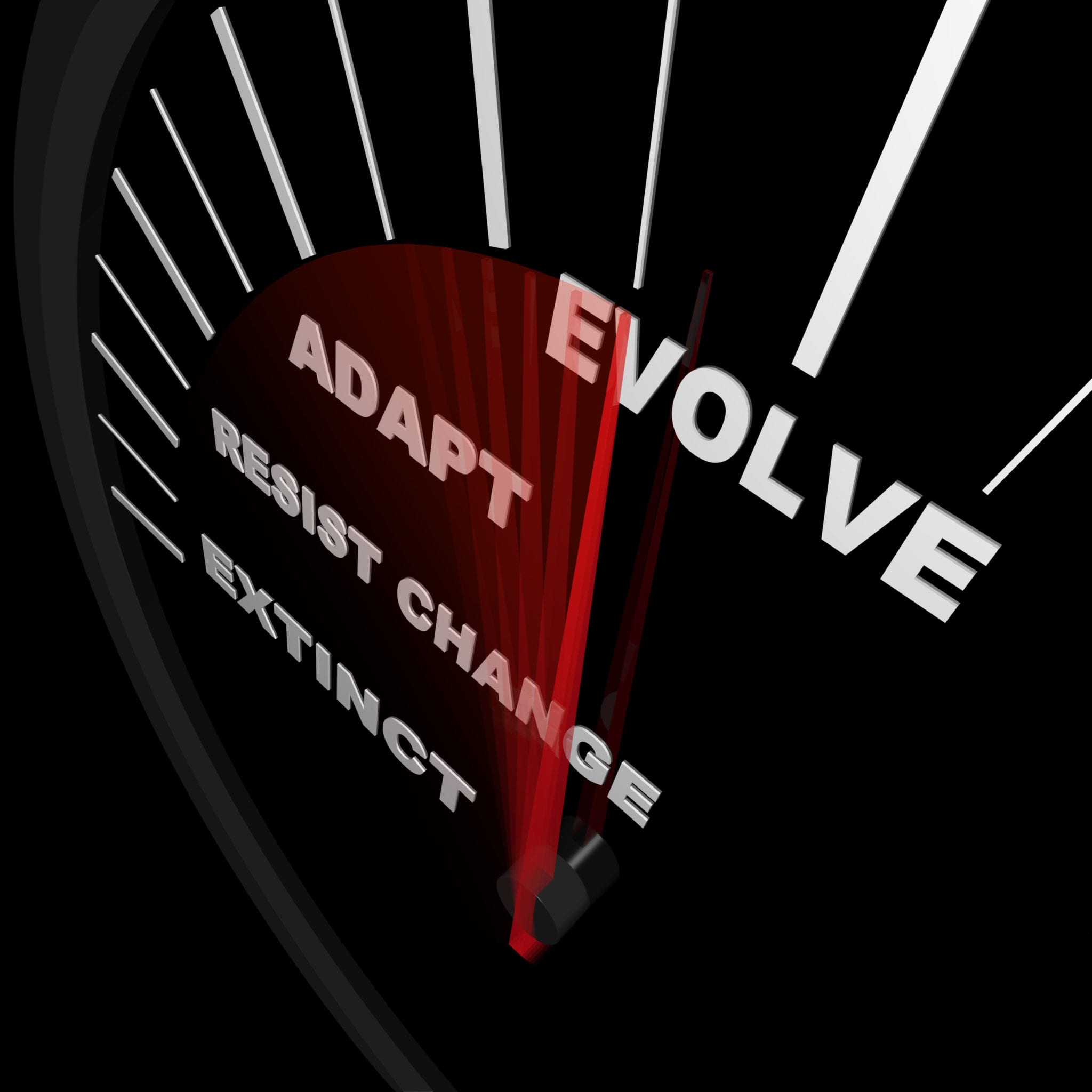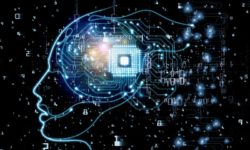Is any form of evolution simply a process of change over time?
Across nations, evolution is largely accepted, perhaps not in its original form of natural selection, but in what everyone largely agrees, and that is the survival of the fittest. As Darwin focused on changes in individual organisms from generation to generation over time, should we as informed individuals or our nations need to do the same for our respective nations: governments, industries, organizations, and academia (NGIOA)?
Perhaps, it is time each individual, community, village, town, city, state, and nation begin to understand how the technology triggered transformative changes from generation to generation, have over the years evolved into our respective nations innovation, technology, industry, and economic diversity, character, prosperity, success, and culture—how they are all intertwined and interdependent—and how the process of technology triggered evolution continues to change what we see today, and what we will be seeing in the coming tomorrow.
Any form of evolution is simply a process of change over time:
• When applied to biology, evolution refers to changes in living organisms
• When applied to technology, evolution refers to changes in technology as advanced technology out-competes old technologies
• When applied to business, evolution refers to the changes in the nature of business models, as old business models are replaced with new models
• When applied to education, evolution refers to changes in education, as old educational models are replaced with new models
• When applied to politics, evolution refers to changes in political ideology
• When applied to culture, evolution refers to changes in ideas, beliefs, values, and practices
• When applied to society, evolution refers to changes in social constructs and more
The reality of the digital global age necessitates that Darwin’s evolution theory, a theory that has now evolved from natural selection to the survival of the fittest to symbiosis to mutualism be translated and scaled from micro to macro level—and understood and evaluated from the perspective of the technology triggered changes seen across nations.
From the perspective of biology, scientists would argue that genetic mutations triggered the onset of changes that became part of a species heritage. Understanding scientific theory of changes at the micro-level helps us understand the technology triggers that bring changes at macro levels — resulting in the state of nations as seen today.
It is important to evaluate some fundamental questions around
one such macro trigger— that is the technology triggered digital global age:
• How did things come to be this way in our lives, our communities, and
our nations?
• What process has created this state of reality in our lives, our communities,
and our nations?
• What technology has created this state of reality in our lives, our
communities, and our nations?
• What process has created this state of reality in our lives, our communities,
and our nations?
• What influence has created this state of reality in our lives, our
communities, and our nations?
• What are the challenges as seen from the current state across nations? What
are the gaps? What is necessary? Is there a possibility of innovation? Is there
a need for change?
The changes we as individuals, our communities, and nations are going through will change the shape of not only our thoughts, ideas, outlook, vision, character, culture, and destiny but the very state of our nations and the human race.
Let’s take a step forward and think a little deeper. What steps are necessary for changes, innovation, transformation, and evolution at macro levels? Is it the causal elements of nations: governments, industries, organizations, and academia working together, collaboratively, that produce necessary changes and transformation?
Let’s evaluate this.
• Nations are comprised of individuals and entities across governments, industries, organizations, and academia (NGIOA) — that vary over so slightly from each other when one compares it with NGIOA from across other nation’s geographical boundaries
• Each NGIOA has a tendency to increase in size over the years at an exponential rate
• Given limited resources, this tendency creates a constant condition for a struggle for survival
• Some NGIOA will have a variation that gives them a slight advantage in the struggle over other NGIOA’s
• This NGIOA will tend to survive better and pass on the favorable variations to the future generations
• Over time this process will root the transformation, character, economic strength, industry diversity, culture, and prosperity of that nation—and its NGIOA
• Given a long enough period, the descendent NGIOA will differ from other NGIOAs
• That NGIOA with favorable variation will survive after a competitive struggle and dominate
Let’s go back to Darwin’s evolutionary theory—Darwinism, which is a historical entity—and understand that like every historical entity, theories undergo change through time and evolve. There are many across nations who believe that the theory of evolution is better represented by the survival of the fittest concept—which is deeply rooted in a competitive struggle over natural selection—and which has been at the core of Darwin’s evolution theory.
- So the expected question is, where does the theory of evolution go from here at both micro and macro levels? Natural selection to the survival of the fittest?
- Is this the end of evolution theory and debate as we speak? No–Evolution theory has evolved itself and is evolving further.
To understand this further, it is important to understand the current and ongoing technology transformation across nations. The propensity of dynamic systems at all levels of nations: its governments, industries, organizations, and academia (NGIOA) are getting complex and are expected to get more complex in the coming years due to technology-process innovations and the ongoing digitization and globalization. This necessitates and demands a re-evaluation of the meaning of innovation, changes, complexities, transformation, capitalism, and the very process of evolution.
Nations are made of governments, industries, organizations, and academia—each having a separate role in the existence of a nation. However, they are invariably linked together, having a co-existence and mutualism—a sort of symbiotic relationship. The relationship between NGIOA is advantageous—which benefits all within an NGIOA and harms neither. This close, interdependent, prolonged association brings each NGIOA, each one of us, an opportunity as well as risk. This mutualism and its associated opportunities and risks bring a wonderful new perspective on not only the state of human life and nations in general but the very nature and meaning of transformation and evolution.
Application of evolutionary theory to NGIOA in a digital global age leads to fundamental questions about challenges, competition, struggle, and survival. This increased NGIOA competition of a digital global age is a source of worry to many as it has developed highly turbulent and fragile NGIOAs. However, a broader understanding of technology transformation and evolution, taking into account not only interactions within and across NGIOA, but also cooperation within and across NGIOA, would introduce some sort of balance into our understanding of fundamentally evolving NGIOAs and this highly fearful and controversial time of digital global age.
Amidst the most extraordinary challenges of the nation’s existence, stands a beautiful vision of global co-existence—so deep-rooted in humans’ hearts—and yet ignored by many.
Mutualism, co-existence of NGIOAs is the supposedly ultimate mystery, calling, and goal of a digital global age. Each NGIOA, at a different maturity level and with a different formulation, different processes, tools and techniques, intelligence and innovation, culture and traditions, values and thinking, roots the complexities seen across nations’, and it is this diversity and complexity that makes evolution to symbiotic mutualism painful, problematic – but possible.
Amidst the ruthless competition of digitizing and globalizing economies, the reality of the complex problems and current challenges of the fearful digital global age sheds doubt on the necessary cooperation of NGIOA within and across the nation’s government, industries, organizations, and academia. However, it is fundamental to understand that survival in a digital global age is a case for cooperation at all levels of NGIOA. If survival, success, progress, development, order, and balance are to be maintained in a digital global age, the integration of interdependent NGIOA is vital. While higher intelligence and desire to dominate may persuade a pitiless inner war of dominance between governments, industries, organizations, and academia within a nation, there are many who believe that humans are naturally cooperative, and that crime, violence, greed, and inequality are the results of some people and institutions trying to stay relevant.
Going further, competition and struggle are normal elements of survival and paradigms of the existing capitalist system. However, if we look closely at the evidence for interaction and interdependence within and between NGIOA in a capitalist system, it can be found everywhere. There is a vital need to take a more balanced view of this global reality and understand the emerging trend in the evolution cycle—that is from capitalism to conscious capitalism. As the need for conscious capitalism and the recognition of NGIOA mutualistic symbiosis has been quietly growing, it is time to acknowledge that mutual support and cooperation of NGIOA is as necessary as conceding the reality that, effects of every action, within and across a nation’s geographical boundaries, will not only determine the state of that nation but the very nature of digitization, globalization, global age and the survival of the human race.
From not caring about the impact of any action to being caring and aware about the effect of every action, will transform nations towards necessary evolutionary changes across their governments, industries, organizations, and academia!
However, this requires a social, behavioral, or cultural evolution. Bringing a cultural evolution across NGIOA relies on the reproductive success of ideas, innovations, integration, inner drive, and investments. While both biologic and cultural change entails the same fundamental processes of variation, selection, and inheritance/transmission, when it comes to genetic or biologic evolution, humans were thought not to have a choice (changing rapidly) but to accept their biological inheritance—whereas, with cultural evolution, there is a choice, and there could be resistance—making cultural evolution much more challenging, complex and slow.
Because we humans are more than just conscious and are also self-aware—and need progress and development on all fronts—one would like to believe that any intelligent and informed human being would have some level of conscience. While making a profit is essential for the vitality of any business venture, being self-aware, intelligent, and informed demands more than profit-centric decisions.
Consciousness’ commands thinking beyond profits and the bottom line for the future of humanity.
Consciousness simply means being conscious of more—and begins with self-awareness — the desire and willingness to look inside, to acknowledge our confines, qualms, and frights, and to take responsibility for every action and decision we take individually and collectively. We, as intelligent human beings possess all the resources to be conversant, careful, and conscious —and be accountable for all the consequences of our actions and decisions. Integrating consciousness to capitalism, collaboration and cooperation is a necessary evolutionary step to acknowledging the complex interconnectedness and interdependencies of the digital global age as seen across nations.
The higher state of consciousness and intelligence that we humans possess calls us to find purpose far beyond profits, and look beyond our silos to move towards the mutualistic symbiosis of interconnectedness and interdependencies across NGIOA. It is the search for meaning and purpose of digitizing and globalizing economies in life that should motivate us all to look beyond profit-centric decisions and move towards finding sustainable solutions for all.
While conscious living is expected to create wealth in all formats for all stakeholders across nations and help us reach the next stage of the evolutionary journey, it is important to recognize that the process has just begun—and will likely take years before it will be visible, vibrant and prolific.
While there is an inherent mutualistic relationship between the nation’s government, industries, organizations, and academia, there are many who may dismiss the mutualism—within, amongst, and beyond NGIOA as a sheer exaggeration of our time, our digital global age. Nations have become so adapted to their silo existence and way of life that it is hard for them to begin imagination of the power of mutualism. For many, the notion that their NGIOA has to cooperate within and across its nations’ boundaries in cyberspace, geospace, and space, with which they are trying to compete, is nothing more than wishful thinking. Also, mutualism to some is an anti-capitalist notion. This is a misguided notion. While NGIOA mutualism may not satisfy traditional free-market capitalists, it will make a convincing argument for conscious capitalism. Each NGIOA is capable of mutualistic interdependence and forging mutually beneficial relationships without compromising the very fundamentals of the capitalist system. The nature and intensity of the mutualistic relationships between NGIOAs would inevitably change the makeup of nations and the world—a world that provides the promise of solutions—a world where integrated NGIOA can help rise to that promise and go on to the digital global journey together—hand in hand.
The digital global age has brought the beginning of an end to nations living in isolation, and the beginning of nations living in an interconnected and interdependent digital global economy. This is a stepping-stone to the coming tomorrow—of a Space Age. Mutualism aims to stimulate and encourage this digital global age promise and journey to space-age collectively.
Within the mutualistic symbiosis of NGIOA, each element of the nation has something that others benefit from, where the surviving potential of the interacting and interdependent partnership probably amounts to more than the individual existence. This symbiosis, co-existence, or symbiotic mutualism of NGIOA is a major force in evolution and is the foundation of the Digital Global Age.
Natural Selection to Symbiosis to Mutualism to Mutualistic Symbiosis
We, informed, intelligent, and conscious individuals must control our evolutionary future and ultimately, our nations and the future of humanity. The scientist within us needs to look for a rational system of belief for our actions that are based on conscience, human logic, and self-awareness and is backed up by some form of evidence—that will help us get through the expected turmoil brought on by the technology transformation, digital disruption and changing times.
One may ask, what has conscious capitalism and mutualistic symbiosis got to do with survival, success, evolution, digitization, globalization, and the digital global age. Some would say that survival and success come to smart and self-seeking people, and evolutionary changes happen on their own.
- Can this be true in the current technological environment?
- Is this true in a digital global age?
Amidst the complex challenges of the emerging digital global age, survival and success, great changes, innovations, and discoveries require self-aware and conscious humans that would evolve everything around them over time. By being self-aware, conscious understanding the gaps, identifying what is necessary, and keeping an open mind on the state of reality surrounding us—the much-needed cultural evolution will happen. E.g., my vision of symbiotic mutualism between NGIOA has just been put forward and will likely go through many adjustments before it fully evolves. This is the nature of evolution, and there is no exception to the way it works.
Alteration of the way of doing things leads to evolution and evolution comes with changes and innovations. It is important to understand what is culturally required for any evolutionary innovations to succeed. We need to keep in mind that evolution is a slow process and takes a long time to observe, especially in human years.
Let us all embark on having individual and collective conscious goals to elevate the discussion on this critical topic to move beyond self-centeredness and sound bites and into the hearts and minds to shape the coming tomorrow. Let us be self-aware, conscious, informed, develop our minds, and evolve.
About the Author
Jayshree Pandya (née Bhatt), Founder and CEO of Risk Group LLC, is a scientist, a visionary, an expert in disruptive technologies, and a globally recognized thought leader and influencer. She is actively engaged in driving global discussions on existing and emerging technologies, technology transformation, and national preparedness.
Her work focuses on the impact of existing and emerging technological innovations on nations, national preparedness, and the very survival, security, and sustainability of humanity. She believes that the reality of the imminent technological and economic singularity necessitates that Darwin’s evolution theory, a theory that has evolved from natural selection to the survival of the fittest to symbiosis to mutualism be translated and scaled from micro to macro level and understood and evaluated from the perspective of the transformative and evolutionary changes seen across nations (largely triggered due to technology transformation and re-defining and re-designing of systems at all levels). Her research in this context evaluates the evolution of intelligence in all forms, researches strategic security risks emerging from disruptive innovations, reviews the diminishing capacities of the risk management infrastructure, points out the changing role of decision-makers, defines dynamic decision-making approaches with machine intelligence, integrates all components of a nation: governments, industries, organizations and academia (NGIOA), and defines strategic security risks so that nations can improve the state of risk-resilience across cyberspace, geospace and space (CGS). As nations make a move from centralization towards decentralization, the re-defining and re-designing of systems at all levels evaluated in Dr. Pandya’s comprehensive research scholarship include artificial intelligence, machine learning, deep learning, internet of things, blockchain, cryptocurrency, quantum computing, virtual reality, synthetic biology, big data analytics, drones, nanosatellites, biotechnology, nanotechnology, gene editing, and much more. Her research is much needed for the survival and security of humanity today and in the coming tomorrow.
Jayshree’s doctorate work in the 1980s focused on hydrogen production by Halobacterium halobium, for which she received India’s National Young Scientist Award in Biochemistry. Her many publications on this work have been cited in several books, journals, and reports published by governments, including a report from the United States Department of Energy. Her work on anti-cancer drugs also received worldwide attention and, amongst other citations, has been referenced in a report published by the World Health Organization. In 1991, she was invited to come to the United States (under the Scientist Exchange Program) to continue research on hydrogen production and was awarded a post-doctoral fellowship at the Hawaii Natural Energy Institute. After that, she researched atherosclerosis at the University of Chicago Medical School. Next, she took a job at Aurotech, a biotech company based in Wisconsin. As in her Ph.D. research, she used microorganisms to develop natural processes and technologies, and some of the projects she worked on were quite promising. While her doctorate and post-doctorate studies gave her the first taste of the power of interdisciplinary research, it also introduced her to the repressive power of institutional silos and inefficiencies. As a result, her physical location wasn’t the only thing that shifted in the 1990s; her focus did as well. Since Microbiology trained her to see changes in tiny organisms coming from natural selection, she began to see similar forces at work in the evolution of individuals as well as entities across NGIOA and society in general. It’s all the same basic mechanism. Her career took another turn after she was asked to consider risk management as part of a strategic planning effort by one of her employers. She quickly realized that most risk management is all process, with no actual benefit. That was the beginning of Risk Group, the strategic security risk research organization she founded in 2002, from where she is passionately creating and managing cutting-edge security ventures that bring a futurist perspective to nations and all its components to improve innovation capacity and to define and design new ideas, innovations, products, and services for security and sustainability.
From the National Science Foundation to organizations from across nations, Jayshree is an invited speaker on emerging technologies, technology transformation, digital disruption, strategic security risks, industry risks, and country risks. She is the author of the book, The Global Age: NGIOA @ Risk and has also published many scientific and technical papers.
Jayshree advises decision-makers at all levels on existing and emerging technologies: emerging applications, impact, and solutions.





 Why Cyber-Security Cannot Be Achieved In Silo
Why Cyber-Security Cannot Be Achieved In Silo